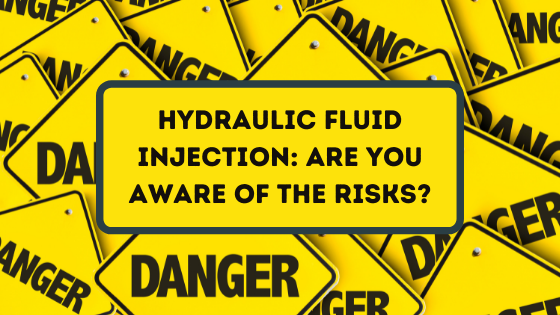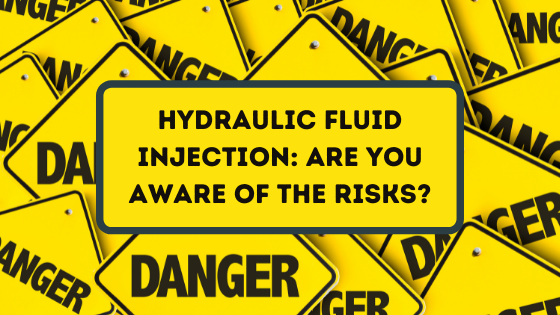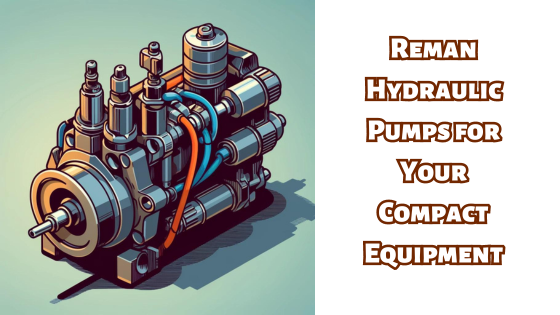Hydraulic Fluid Injection: Are You Aware of the Risks?
Posted by Jim Strong on Nov 3rd 2021
Hydraulic fluid injection can be extremely serious, leading to surgery and possible amputation. Learn the risks and how to prevent it from happening to you!

What Are High Pressure Fluid Injuries?
The first high pressure fluid injury dates back to 1925 and the liquid involved was diesel fuel. Basically, a stream of fluid under high pressure pierces your skin and becomes trapped beneath. And the fluid can be grease, oil, diesel, paint, water, or hydraulic fluid. Usually these fluid injuries are the result of a pinhole leak that results in speeds that can exceed 600 ft/s. And skin penetration can occur up to 4" away from the leak.
Why is Hydraulic Fluid Injection Dangerous?
Hydraulic fluid injection is a specific type of high pressure fluid injuries. Initially, it will just feel like a wire prick or bee sting and the injury site is can be so tiny it looks like a pin prick, but sometimes it can look like a cut or a tear in the skin. Within a few hours of hydraulic fluid injection, you'll probably notice some redness, pain, and swelling. And to make matters worse, hydraulic fluid does contain toxic chemicals that will kill human tissue. After about six hours, you'll notice some throbbing or numbness and the likelihood of amputation of fingers and maybe the hand.
Here's what hydraulic fluid injection can do:
- Blood poisoning
- Bacterial infection
- Permanent damage to blood vessels, tendons, and nerves
- Compartment syndrome
- Necrotic tissues
In a worse case scenario where the injury is ignored, hydraulic fluid injection can lead to death.
What Do You Do If You've Experienced Hydraulic Fluid Injection?
First, don't ignore it if you've come into contact with pressurized hydraulic fluid. Problems don't always develop immediately, but you still need to see a doctor ASAP. Surgery is usually needed to remove the dead tissue (remember that hydraulic fluid does contain toxic chemicals) and clean out the remaining hydraulic fluid. But this is better than having fingers or a hand amputated!
How Do You Prevent Hydraulic Fluid Injection?
So how do you keep hydraulic fluid injection injuries from happening in the first place?
- Don't use your hand to look for hydraulic leaks -- use a piece of cardboard. All too often, technicians will look for a leak by running their hand over the hydraulic lines. And if they don't find one, they'll ramp up the pressure. Again, don't use you hand or risk your arm: use cardboard or something similar to find those leaks.
- Invest in some special gloves that will prevent hydraulic injection
- Don't start inspecting hydraulic equipment when it's pressurized
- Don't open lines to bleed air from cylinders
- Don't loosen or tighten hydraulic lines that are under pressure
Conclusion
Hydraulic fluid injection injuries, and any type of fluid injection injury, are dangerous. And we'd like to encourage all of our readers and customers to be careful when working with pressurized hydraulic fluid. Please don't become another OSHA statistic!








